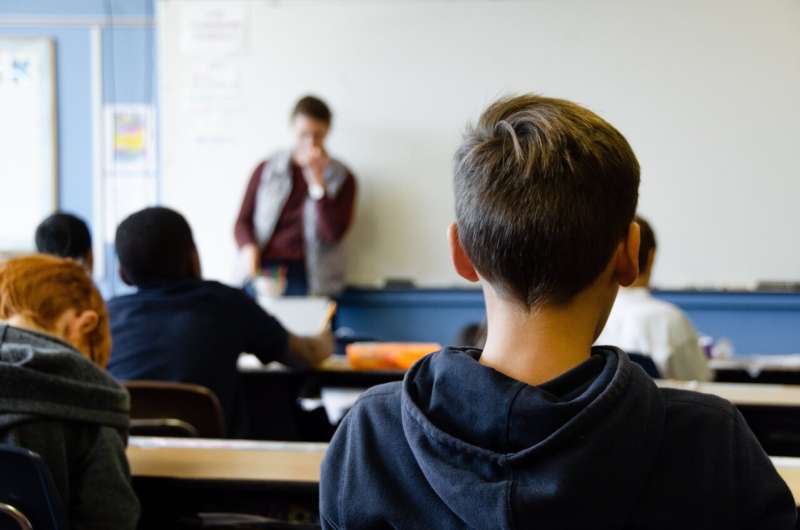This article has been reviewed according to Science X's editorial process and policies. Editors have highlighted the following attributes while ensuring the content's credibility:
fact-checked
proofread
Study suggests struggling students who repeat third grade see improved achievement

Third-grade retention can increase the reading and math scores of struggling students, with positive effects lasting into middle school, according to new research.
The study, by NaYoung Hwang at the University of New Hampshire and Cory Koedel at the University of Missouri, was published in Educational Evaluation and Policy Analysis.
Despite mixed reviews among policymakers, researchers, and educators, grade retention policies are on the rise in the United States. Currently, 25 states and the District of Columbia require or allow school districts to retain students who are not proficient in reading at the end of third grade, although in recent years some states have begun to revisit or rescind their policies.
For their study, Hwang and Koedel examined Indiana's test-based retention policy, using statewide data on third graders through seventh graders from 2011–12 to 2016–17.
The authors found large increases in students' reading and math scores for up to five years after the retention event. There was also no evidence of third grade retention resulting in disciplinary or attendance problems. Moreover, the positive effects were consistent regardless student gender, race/ethnicity, or family income level.
"Our findings show that repeating third grade can substantially improve educational outcomes without causing certain behavioral issues," said NaYoung Hwang, an assistant professor of education at the University of New Hampshire. "Our results corroborate an emerging theme in the grade-retention literature that timing greatly affects how grade retention impacts student outcomes."
Prior research has found that the impact of grade retention on students is more positive—although not entirely positive—when it occurs in early grades, with most of the negative impacts found when retention happens in the sixth grade or higher. Previous studies have also found some evidence that retention can have a harmful impact on the suspension rates of boys and Black and Hispanic students, who are at a higher baseline risk of disciplinary action.
"There are concerns about possible negative impacts of retention on students, especially those most at risk, and it's important that researchers continue to examine how these policies affect students of different backgrounds, grade levels, and geographic regions," said Hwang.
Hwang and Koedel stressed that the academic and socio-emotional support provided to these students by their schools is crucial to their success.
"It's important that scholars, educators, and policymakers continue to assess and highlight best practices for supporting the success of these students, and that states and districts learn from one another," Hwang said.
The authors noted their study does not examine the longer run effects of grade retention, including outcomes in high school, or the effects on other non-academic outcomes, such as self-esteem, peer relationships, or confidence.
More information: NaYoung Hwang et al, Helping or Hurting: The Effects of Retention in the Third Grade on Student Outcomes, Educational Evaluation and Policy Analysis (2023). DOI: 10.3102/01623737231197639
Provided by American Educational Research Association




















